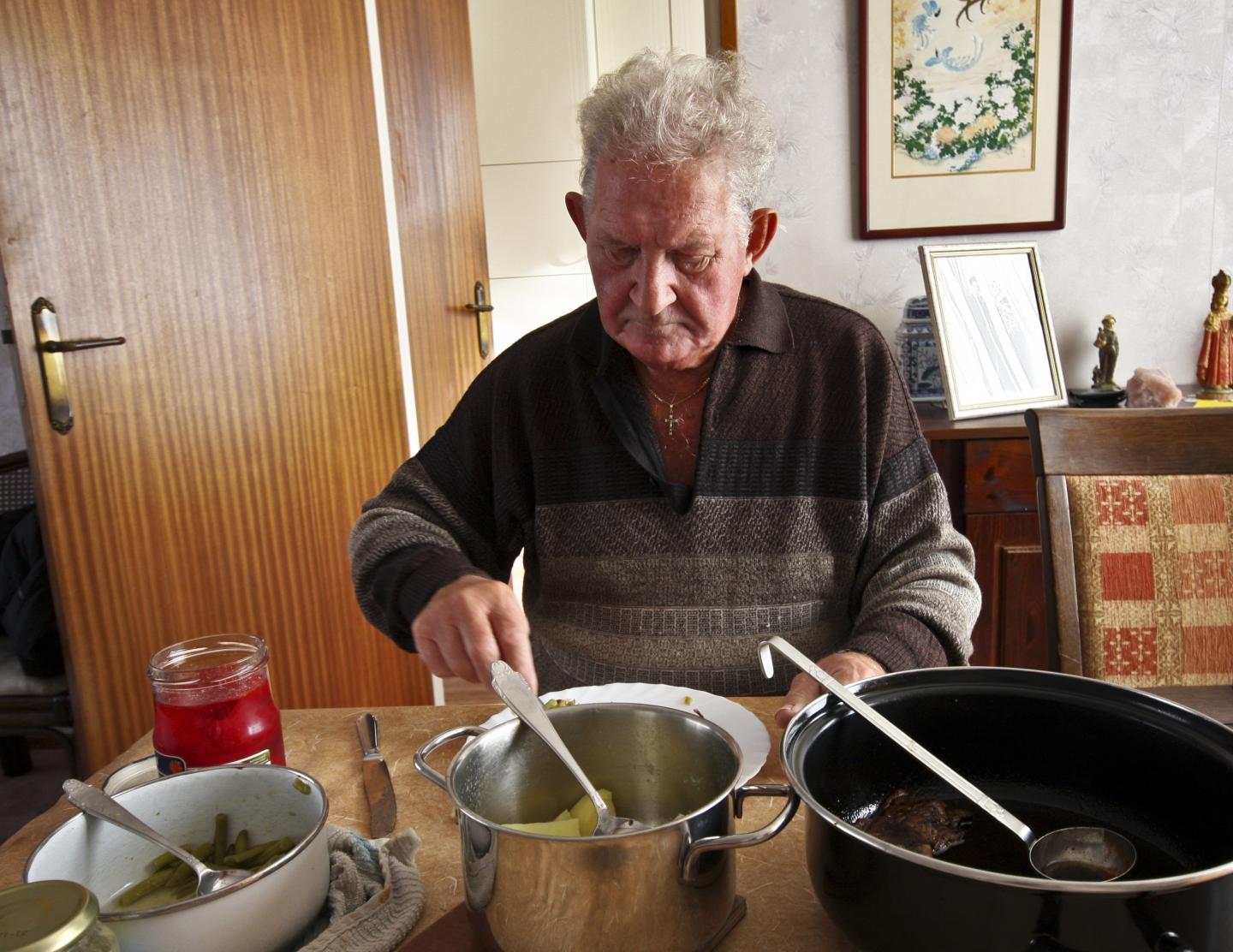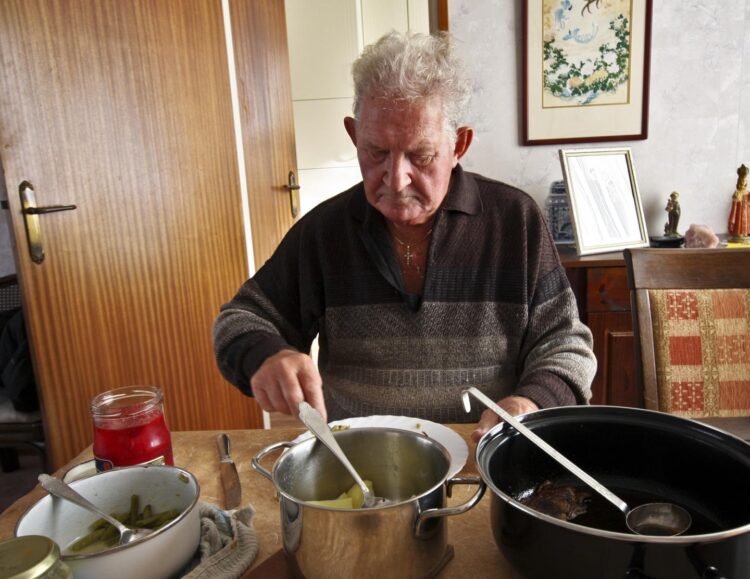The assumption that an elderly widower can hardly boil an egg simply doesn’t stand according to a recent University of Copenhagen study. The study reports that male seniors do cook and only blossom in the kitchen once alone. Widows appear to be less inte

Credit: Getty
FOOD HABITS The assumption that an elderly widower can hardly boil an egg simply doesn’t stand according to a recent University of Copenhagen study. The study reports that male seniors do cook and only blossom in the kitchen once alone. Widows appear to be less interested in cooking. The new findings can be useful for municipal elder care and suggest that changing gender roles don’t just apply to younger generations.
Elderly man
Photo: Getty
When older men lose a partner, there is an assumption that, due to traditional gender roles, they are helpless in the kitchen, fall by the wayside and end up living off of ready-to-eat meals and municipal food services because they’ve never learned to cook.
However, results from a new study at the University of Copenhagen’s Department of Food and Resource Economics suggest that that this assumption may no longer hold water. In-depth interviews with 31 widowed men and women ages 67 to 86 paint a more nuanced picture.
“There’s been a long-held assumption that older men are challenged in the kitchen, practically speaking, when living on their own. But, that’s not what I see. While there are single men from older generations who are challenged, there are also those who are adept in the kitchen and who have taken up the challenge of cooking once alone. And perhaps, even after a wife has fallen ill or upon their own retirement,” says researcher and assistant professor Sidse Schoubye Andersen, the study’s author.
The researcher asserts that this behaviour surrounding cooking accords with the times, as men increasingly take part in household chores, but which also contradicts the well-known and somewhat gloomy narrative of the single man.
Men make pâtés and sausages from scratch, women eat cheese sandwiches
Many of the widowers in the study experience cooking as a new hobby, one in which they most notably flourish in relation to meat dishes, when asked, for example, what they ate the day prior to the interview. Sidse Schoubye Andersen explains:
“The men recounted in detail how they had prepared a pork roast or made sausage and liver pâté from scratch. While the dishes they prepared were often quite elaborate, they reported making them because they thought it was fun to do so and because it was important for them to have a hot meal.” She adds:
“The men were worried about being considered helpless or dependent upon others when it came to cooking. It was important for them to demonstrate that they could take care of themselves and be distanced from the man who ‘goes to the dogs’ upon the passing of his spouse.”
A different picture emerged among widowed women. Here, according to the researcher, the trend was that cooking ought not take longer than the time required to eat, and that cooking was considered more of a chore.
“The women told me that they weren’t interested in spending too much time on cooking for themselves, and could often settle for some bread and cheese. One of them said that despite being terribly sorry to have lost her husband, the fact that she no longer had to cook was perfectly okay and somewhat of a relief,” explains Schoubye Andersen.
Old age precipitates new gender roles
According to the researcher, the results are in part an indication that men and women perceive cooking differently, probably due to differing divisions of labour throughout life; men consider cooking a hobby, women see it as daily work. But these divergent narratives also express the gendered expectations of older men, women and their food habits.
“When an older woman describes skipping meals or eating bread and cheese, we interpret it as an expression of a priority. She needn’t defend or explain it. Conversely, when older men make a big deal about not skipping a meal and detail their elaborate concoctions, it is partly because they seek to distance themselves from the image of a helpless widower,” explains Sidse Schoubye Andersen.
The study is one of very few conducted in this area, which, according to the researcher, is partly due to the fact that as a society, we often forget to include older generations when appreciating changed gender roles. For example, we assume that seniors live according to traditional patterns and, as such, don’t reflect modern trends.
“The results of this study reflect that some of the changes apparent in the gender roles of modern families are also at play among seniors. But we often forget to carry out research into changes in old age – because we assume that change and development are primarily a matter of youth,” says Schoubye Andersen.
She hopes that the study can contribute new knowledge and add nuance to the picture of the seniors who live alone, e.g. in connection with preventive home visits by municipalities, which falls under the Danish Social Service Law.
###
Facts:
Read the complete study here
The study was conducted via in-depth interviews with 31 older men and women, ages 67-86, who lost their partner within the previous 5 years.
Study participants came from urban and rural areas in Jutland, Funen and Zealand.
The interviews were conducted in 2018 and 2019.
The study is part of the project: “Loss of partner. Loss of appetite?”, supported by the Velux Foundation.
Media Contact
Sidse Schoubye Andersen
[email protected]
Original Source
https:/
Related Journal Article
http://dx.
https://scienmag.com/new-research-questions-myth-of-the-elderly-widower-of-course-grandpa-cook/





